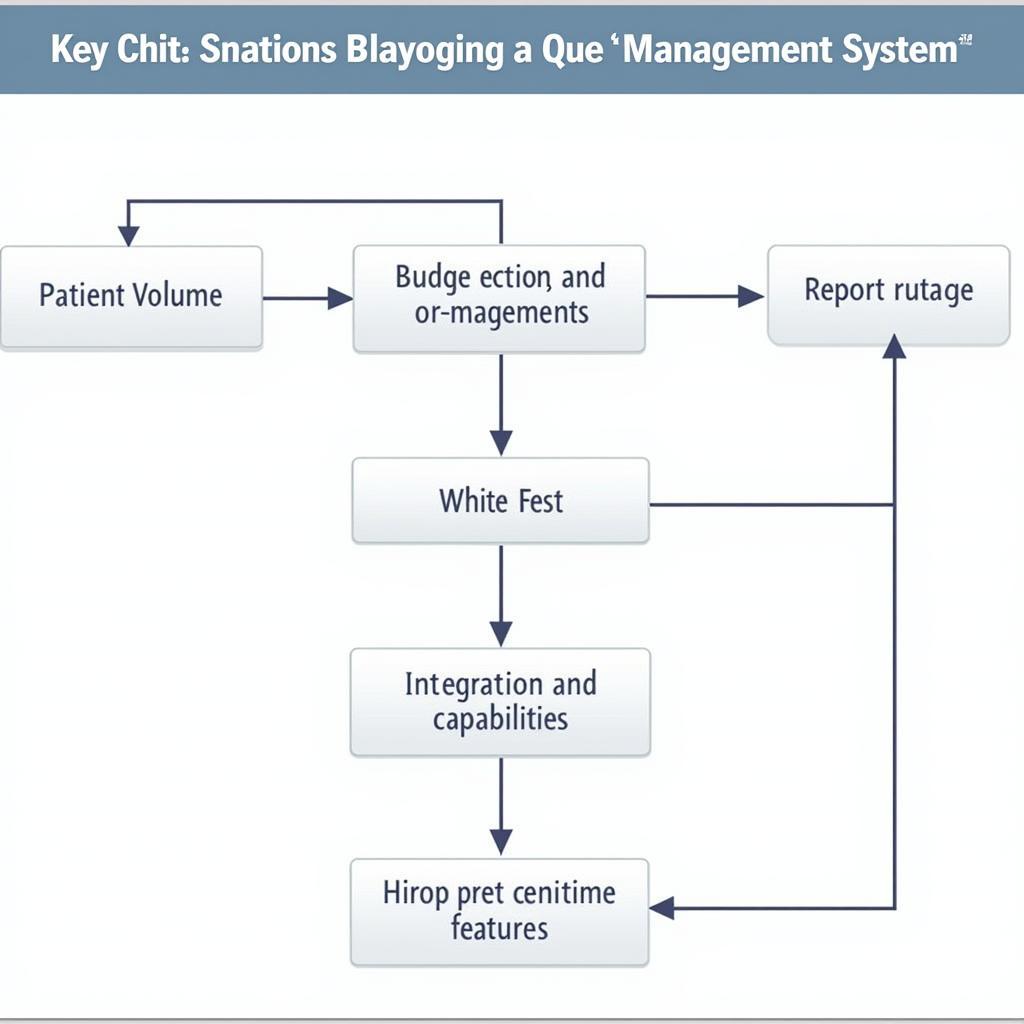A Queue Management System For Hospitals is no longer a luxury but a necessity. It’s the key to a smoother patient experience, improved staff efficiency, and a more organized healthcare environment. In today’s fast-paced world, optimizing patient flow is crucial, and a robust queue management system can be the answer.
What is a Queue Management System for Hospitals?
A queue management system for hospitals is designed to streamline the patient journey from registration to consultation. It replaces traditional, chaotic waiting lines with a structured, digital system, offering patients a more comfortable and predictable experience. This system allows hospitals to manage patient flow more effectively, minimizing wait times and improving overall satisfaction.
Key Features of an Effective Queue Management System
- Virtual Queuing: Patients can join the queue remotely via their mobile devices, eliminating the need to physically wait in line.
- Appointment Scheduling: Patients can book appointments online, reducing administrative burden and ensuring a smooth check-in process.
- Real-Time Updates: Patients receive notifications about their estimated wait time and queue position, keeping them informed and reducing anxiety.
- Automated Check-in: Self-service kiosks or mobile check-in options facilitate a faster and more efficient registration process.
- Reporting and Analytics: Data-driven insights help hospitals identify bottlenecks and optimize resource allocation.
hospital queue management can significantly enhance the patient experience.
How Does a Queue Management System Benefit Hospitals?
Beyond enhancing patient satisfaction, a queue management system offers significant advantages for hospitals:
- Increased Efficiency: Streamlined processes free up staff time, allowing them to focus on patient care.
- Reduced Wait Times: Optimized patient flow minimizes wait times, improving patient satisfaction and reducing frustration.
- Improved Resource Allocation: Data insights enable better resource allocation, ensuring that staff and facilities are utilized effectively.
- Enhanced Patient Experience: A more organized and predictable waiting experience contributes to a positive overall patient experience.
q management system for hospitals offer a range of benefits for modern healthcare institutions.
What are the different types of queue management systems for hospitals?
There are several types of queue management systems available for hospitals, including:
- Linear Queuing: This is the most basic type, where patients wait in a single line.
- Virtual Queuing: Patients join a virtual queue via their mobile devices.
- Multi-Service Queuing: This system allows patients to join different queues for different services.
hospital queue system can be tailored to meet the specific needs of different hospital departments.
Choosing the Right Queue Management System for Your Hospital
Selecting the right queue management system for hospitals is crucial. Consider factors like hospital size, patient volume, and specific departmental needs.
“Choosing the right queue management system is an investment in the future of your hospital,” says Dr. Emily Carter, Healthcare Management Consultant. “It’s about creating a positive experience for both patients and staff.”
 Choosing the Right Queue Management System
Choosing the Right Queue Management System
queue management system in hospital should be scalable and adaptable to future growth.
“A well-implemented queue management system can significantly impact patient satisfaction and operational efficiency,” adds Dr. David Miller, Chief Operating Officer at a leading hospital.
visitor management system for hospitals can also be integrated with a queue management system.
Conclusion
Investing in a robust queue management system for hospitals is a strategic move towards enhancing patient satisfaction, optimizing staff efficiency, and creating a more organized and efficient healthcare environment. By streamlining patient flow and minimizing wait times, you can elevate the overall patient experience and create a more positive healthcare environment.
FAQ
- What is the cost of a queue management system? (The cost varies depending on features and hospital size.)
- Can the system integrate with existing hospital software? (Most systems offer integration capabilities.)
- How does the system improve patient satisfaction? (By reducing wait times and providing real-time updates.)
- Is training required for staff to use the system? (Training is typically provided by the vendor.)
- What are the reporting capabilities of the system? (Systems offer various reports on patient flow and wait times.)
- Can the system handle high patient volumes? (Scalable systems are designed to manage peak demand.)
- What are the security features of the system? (Data security is a priority for reputable vendors.)
For further assistance please contact Phone Number: 02437655121, Email: [email protected] Or visit us at: No. 298 Cau Dien Street, Minh Khai, Bac Tu Liem, Hanoi, Vietnam. We have a 24/7 customer support team.